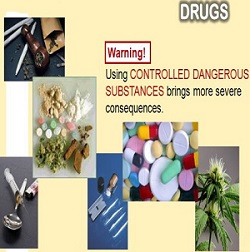Meet Allover Healthcare Group™
Time to heal... Spreading the Allover Solution...
One service at a time.
Allover Outpatient Substance Used Disorder or Substance Abuse SUD Programs: Early Intervention (ASAM Level 0.5) DUI, DWI, SUD OP Treatment Level 1 and SUD IOP Treatment Level 2.1
Our Substance Use Disorder Programs (SUD) or Substance Abuse Programs are Maryland State Licensed Programs: Level 0.5 Early Intervention Services, DUI Drugs and Alcohol Education Program - AEP , Level 1 SUD Outpatient Treament Program and Level 2.1 SUD IOP Intensive Outpatient Treatment Program .
Early Intervention Programs
Our Early intervention programs are services for specific individuals who, for a known reason, are at risk of developing Substance‐ related problems, or a service for those for whom there is not sufficient information to document a Substance use disorder. They are designed for adults or adolescents who are at risk of developing a Substance use disorder but do not display any diagnostic criteria to be admitted to rehab.
During our early intervention program, treatment focuses on the risk factors that predispose the person to drug addiction and educates the individual about the negative repercussions of drug misuse.
The duration of early intervention services greatly depends on the patient’s understanding of the perils of Substance use and whether he or she makes behavioral changes to avoid the path to drug addiction. Patients are closely monitored for symptoms that indicate they need a higher level of treatment.
An individual who is an appropriate candidate for level 0.5 services evidences problems and risk factors that appear to be related to Substance use or addictive behavior. However, the individual may not meet the diagnostic criteria for a Substance use or addictive disorder defined in the current Diagnostic and Statistical Manual of Mental Disorders (DSM‐5) as described below:

- Alcohol is often taken in larger amounts or over a longer period than was intended.
- There is a persistent desire or unsuccessful efforts to cut down or control alcohol use.
- A great deal of time is spent in activities necessary to obtain alcohol, use alcohol, or recover from its effects
- Cravings or a strong desire or urge to use alcohol.
- Recurrent alcohol use resulting in a failure to fulfill major role obligations at work, school, or home.
- Continued alcohol use despite having persistent or recurrent social or interpersonal problems caused or exacerbated by the effects of alcohol.
- Important social, occupational or recreational activities are given up or reduced because of alcohol use.
- Recurrent alcohol use in situations in which it is physically hazardous.
- Alcohol use is continued despite knowledge of having a persistent or recurrent physical or psychological problem that is likely to have been caused or exacerbated by alcohol.
-
Tolerance, as defined by either of the following:
- a. A need for markedly increased amounts of alcohol to achieve intoxication or desired effect.
- b. A markedly diminished effect with continued use of the same amount of alcohol.
-
Withdrawal, as manifested by either of the following:
- a. The characteristic withdrawal syndrome for alcohol.
- b. Alcohol (or a closely related Substance, such as a benzodiazepine) is taken to relieve or avoid withdrawal symptoms
12-Hour DUI and DWI Alcohol Education Program or First Time DUI Offender Program - AEP
Where the Level 0.5 service is a Driving under the Influence (DUI) or Driving While Impaired (DWI) program , the length of service is often 12 hours education program, 2-hours Drugs and Alcohol Education DUI class once per week for 6-Weeks, and completion of the program may be required for reinstitution of driving privileges or removal of charges from their criminal record.
Our Level 0.5 program services encompass educational programs for groups such as DWI (Driving While Impaired) or DUI (Driving under the Influence) offenders and other populations with increased risk (other Substance use –related offenses).

Outpatient Program (OP) Treatment - Substance Use Disorder Program Services
Allover Healthcare Group Outpatient (OP) Substance Use Disorder or Substance Abuse Services allows the client to attend onsite individual and/or group therapy treatment for approximately one hour, 1-2 days a week.
The service includes these following below:-
Group, Individual or Family counseling treatment, or both as clinically indicated
Alcohol and drug education; and
- Referral for further assessment or to another level of treatment, as clinically indicated, if needed.
-
Education on Wellness, Recovery and Resiliency
-
Medication Management
-
Suboxone Treatment
- Medical Marijuna Certication
-
Sober Living Homes / Halfway House
Intensive Outpatient Program (IOP) Treatment - Substance Use Disorder Program Services
Allover Healthcare Group Intensive Outpatient Program (IOP) - Substance Use Disorder or Substance Abuse Services provides care for 3-6 days a week, three hours a day, at minimum, allowing clients greater access to the community.
The service includes these following below:-
Group, Individual or Family counseling treatment, or both as clinically indicated
Alcohol and drug education; and
- Referral for further assessment or to another level of treatment, as clinically indicated, if needed.
-
Education on Wellness, Recovery and Resiliency
-
Medication Management
-
Suboxone Treatment
- Medical Marijuna Certication
-
Sober Living Homes / Halfway House
Our Treatment/Interventions offered may involve individual, Group or family Counseling, Medication Management, SBIRT (Screening, Brief Intervention, and Referral to Treatment) services, as well as planned educational experiences focused on helping the individual recognize and avoid harmful or high‐risk Substance use and/or addictive behavior.
Prior to admission into our program, a diagnostic assessment will be performed to determine whether the potential client meets the diagnostic admission criteria of Services we provide, which requires that a person does not meet diagnostic criteria of a Substance use disorder. If the assessment of such an individual indicates a need for more treatment than the services that we provide, the client will be referred to a program that provides more intensive, clinically appropriate level of care such as inpatient or other outpatient services.
To refer your client to us, please click here to fill out the online form or download our referral form, fill out the hard copy and email us at info@alloverhealthcaregroup.com or fax us at 443-759-8870 the completed copy.



